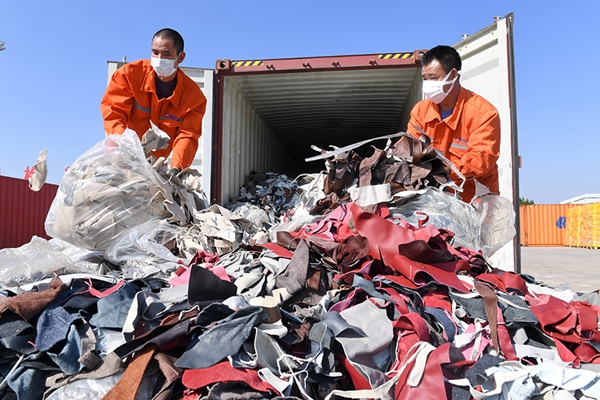Waste import ban designed to safeguard health
 0 Comment(s)
0 Comment(s) Print
Print E-mail China Daily, December 30, 2017
E-mail China Daily, December 30, 2017
China's ban on the importation of several types of solid waste is likely to come into force in March. The move has proved controversial, though, as China is a major market for global recyclables, and some exporting countries, including the United Kingdom and the United States, say it will cause a certain degree of turmoil.
Workers check a load of imported leather scraps in Xiamen, Fujian Province. [Photo/Xinhua]
The planned ban has already affected a number of companies in China, forcing them to close or suspend production, but experts claim it is urgently needed to protect the environment and public health, and will lead to an upgrade of the recycling sector.
On July 18, China notified the World Trade Organization that it would impose a ban on the importation of 24 types of solid waste in four classes, including unsorted waste paper, textiles and plastics by the end of the year, according to a WTO document.
The ban was proposed because of the "large amounts of dirty or even hazardous waste" polluting China's environment, the document stated.
A statement issued by the Bureau of International Recycling, a global alliance of recycling businesses in Brussels, said China later told the WTO that it would adopt new environmental standards for certain types of waste on Dec. 31, and proposed March 1 as the day the ban would come into force, although the date has not yet been officially confirmed.
Since the move was announced in July, it has had an impact on both the global and domestic markets.







Go to Forum >>0 Comment(s)